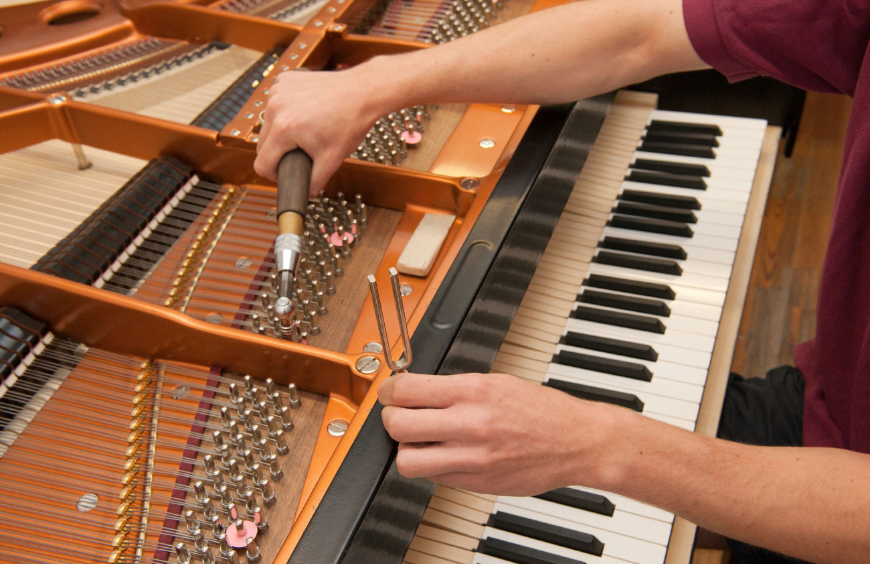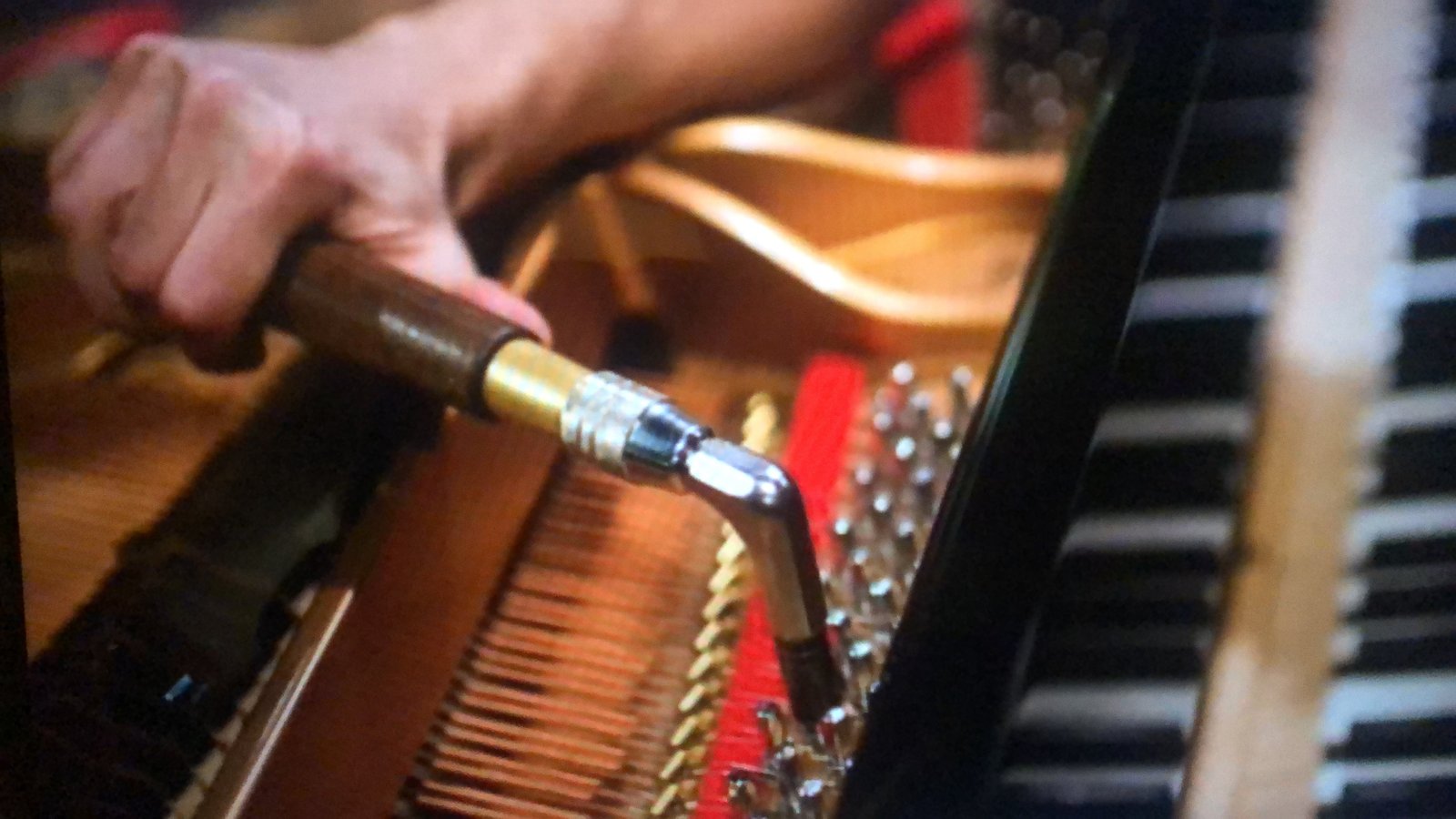No products in the cart.

Let start by some common questions: If I move my piano to another room, does it need to be re-tuned? My grandmother had a fine old upright that she never got tuned. Why does my piano need regular tuning? Back home we always kept a jar of water in the bottom of the piano. Does this help keep the piano in tune? How often does my piano need tuning?
The quick answer: Moving a piano can affect its tuning, so it’s a good idea to have it re-tuned after a move. Regular tuning is important to maintain optimal sound quality. The myth of keeping a jar of water in the piano is ineffective and can potentially damage the piano. Generally, pianos should be tuned at least once a year, but more frequent tuning may be necessary depending on factors like age, condition, and environmental changes. Consulting a professional piano technician is recommended for specific tuning needs.
 Tuning is the most frequent and important piano maintenance, but it’s often the least understood.
Tuning is the most frequent and important piano maintenance, but it’s often the least understood.
Yes, tuning is indeed the most frequent and important maintenance task for pianos. Here are some key points to understand why pianos go out of tune and how you can help maintain better tuning between professional visits:
New pianos require special attention as the strings stretch and the wood settles. It’s crucial to maintain proper pitch during this period to achieve stable equilibrium. Manufacturers typically recommend three to four tunings in the first year and at least two annually thereafter.
Seasonal changes in humidity are the primary cause of pianos going out of tune. The piano’s wooden soundboard, which is the main acoustical structure, reacts to weather conditions. Higher humidity causes the soundboard to swell, increasing string tension and pitch. Conversely, dry conditions flatten the soundboard, reducing tension and causing the pitch to drop.
It’s important to note that the strings don’t change pitch equally. The ones near the soundboard’s edge move the least, while those near the center move the most. This means that unless a piano is in a controlled environment, it will constantly go out of tune.
While it’s impossible to prevent every minor variation in indoor climate, there are steps you can take to improve conditions for your piano and help maintain better tuning. These may include controlling the humidity levels in the room where the piano is located using a dedicated humidifier or dehumidifier, avoiding placing the piano near sources of temperature fluctuation (such as windows or heating vents), and keeping the piano away from direct sunlight or drafts.
By implementing these measures, you can improve the stability of your piano’s tuning between professional service appointments and ensure it continues to sound sweet and harmonious. However, regular tuning by a professional technician is still necessary to achieve the best possible sound quality.
In conclusion, taking care of your piano is essential to maintain its performance and longevity. If you’re looking for professional piano tuning and maintenance services, we’re here to help. Our team of experienced technicians can ensure that your piano is in optimal condition, with precise tuning and proper care. Contact us today to schedule an appointment and give your piano the attention it deserves. Experience the difference of our expert services and enjoy the beautiful sound of a well-tuned piano.

